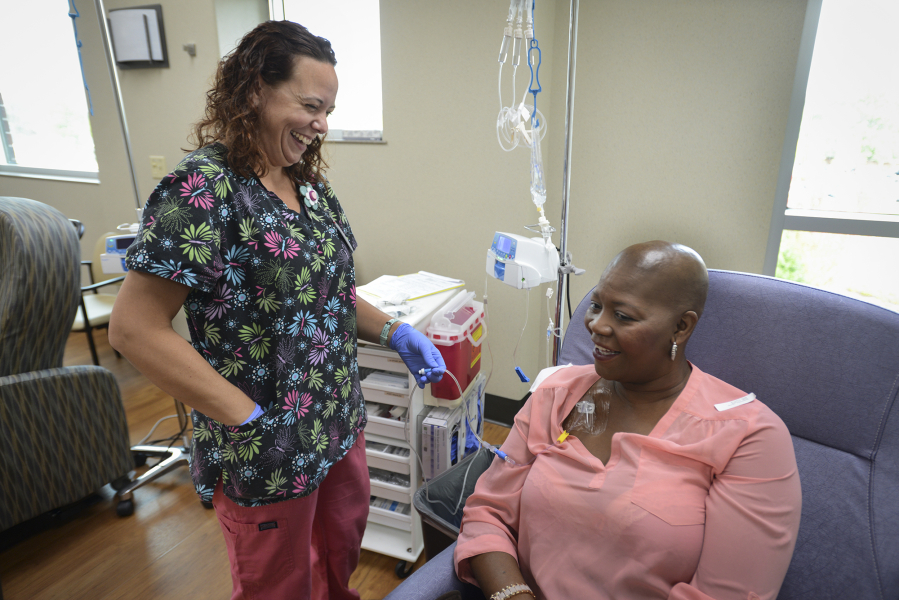Jenneh Onwumere started her day like she starts most days.
She got up at 6 a.m. and took a shower. She dressed and put on a little makeup before waking up her 8-year-old son, Alhassan, and heading downstairs. She made herself a smoothie — a mixture of blueberries, mango, spinach, kale and ginger — and headed out the door.
That day, however, was different than most days. That Thursday morning was the last time the 41-year-old had an appointment with The Vancouver Clinic’s Oncology, Infusion and Urology clinic. After four months of chemotherapy — every other Thursday for eight treatments — Onwumere was completing the first stage of her breast cancer treatment.
African music filled the car as Onwumere drove the 25 miles from her Woodland home to the clinic on Mill Plain Boulevard. When she arrived, Onwumere grabbed the bag of candy she purchased for the nurses and ran up the stairs to the third floor.
First, Onwumere met with her physician to discuss how she was feeling and review her blood work. Then, Onwumere took her place in a heated chair in the corner of the clinic, windows lining the wall behind her. When it was time to begin pre-meds — the medications patients are given to ward off nausea and vomiting caused by the chemo — the nurse asked Onwumere her name and date of birth.




